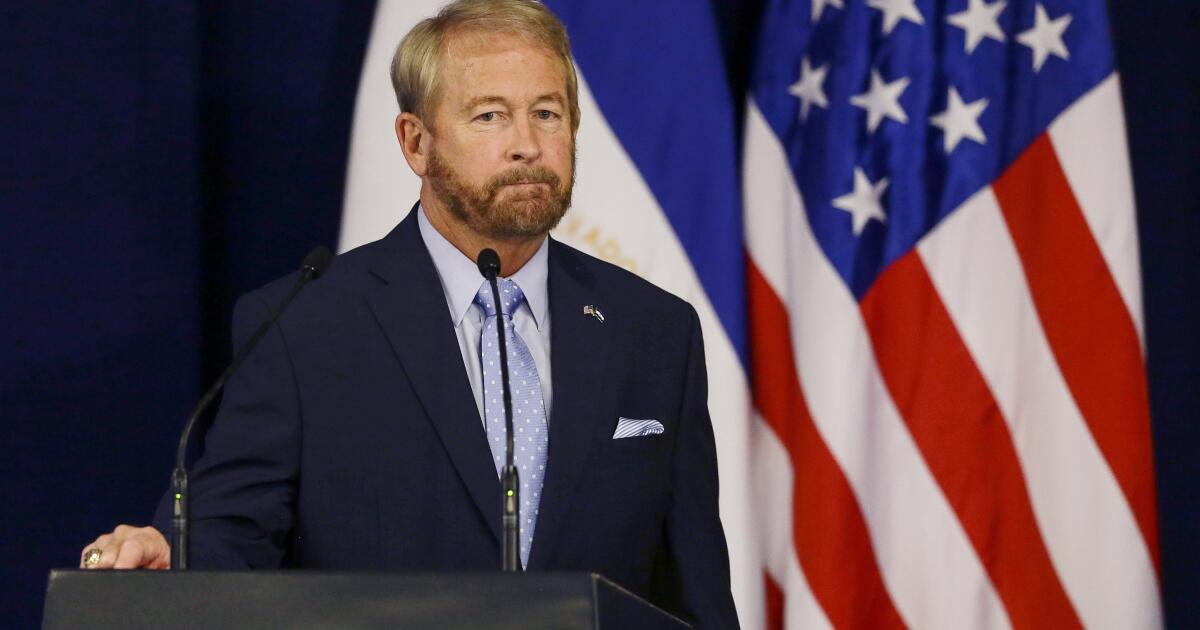The U.S. and its allies are sounding an unusually urgent alarm over Iran’s possible plans to retaliate in the coming days over Israel’s purported killing of senior Iranian officials at a diplomatic mission in Syria.
An Iranian action, it is feared, would likely provoke an Israeli response, which could ratchet up violence in the region.
U.S. officials said this week that Iran appears to be lining up a series of potential retaliations, including direct attacks on Israeli assets — within Israel territory or at diplomatic missions, or operations carried out by proxy groups, such as Hezbollah in Lebanon on Israel’s northern border, and pro-Iranian militias in Iraq.
“Iran is threatening to launch a major attack on Israel,” President Biden said Thursday. “Our commitment to Israel’s security in the face of these threats from Iran and its allies is unwavering.”
British Prime Minister Rishi Sunak expressed similar thoughts. “Threats by Iran are inadmissible,” he said.
The trigger for the latest Israel-Iran standoff is the April 1 bombing of an Iranian building adjacent to the Iranian Embassy in Damascus, in which seven high-ranking Iranian military officers from the Islamic Republican Guard were killed. Israel has neither confirmed nor denied responsibility.
Iran maintains the attack on its diplomatic mission violated international law. U.S. officials say regardless of whether the building had diplomatic status, it was being used to conduct what they call “terrorist” operations targeting Israel from Lebanon.
“The evil regime [Israel] made a mistake and must be punished,” Iran’s supreme leader, Ayatollah Ali Khamenei, said this week.
Biden administration officials are not pleased to see the latest tensions, which come as Israel and Palestinian militant group Hamas are attempting to negotiate a cease-fire in Gaza Strip and the possible release of dozens of Israeli hostages, including several U.S. citizens.
In recent days, senior administration officials say, the U.S. has been frequently exchanging messages with Iran and Israel, in an effort to tone down tensions.
The U.S. is urging restraint by Iran and warning that no strikes should be carried out against U.S. targets. To Israel, the U.S. is saying it will offer support in the case of a major assault, but also urging a calibrated reaction from Israel commiserate with the scale of Tehran’s operation.
The U.S. has insisted to Iran that it was not involved with nor aware of the April 1 attack.
Other countries, including several Arab nations, are also pressing Iran to show restraint, diplomats said.
Secretary of State Antony J. Blinken has made clear “that escalation is not in anyone’s interest, and that countries should urge Iran not to escalate,” State Department spokesman Matthew Miller said Thursday. “Escalation is not in Iran’s interest, it’s not in the region’s interest, and it’s not in the world’s interest.”
Conventional wisdom dictates that Iran does not want a war with the United States. But short of that, the Islamic Republic’s retaliation would have to be carefully dialed up in a way that does only minimal damage to Israel while demonstrating its determination to stand up to external attacks from a hated enemy.
The April 1 attack attributed to Israel came as Hamas, Persian Gulf states and the U.S. were involved in complicated negotiations to free hostages in Gaza seized by Hamas in the Oct. 7 assault.
Some analysts believe Hamas will now be less likely to release hostages as it waits to see the next move by its patron, Iran.
Negotiators in the hostage release are discussing the release of 40 people in the categories of women, children and men over 50 years of age. But U.S. officials say it appears there are no longer 40 living hostages to fit that category, and so Hamas would have to be willing to add other hostages, such as younger non-military men. In exchange, Israel would release a still fluctuating number of Palestinians held in Israeli jails.




















